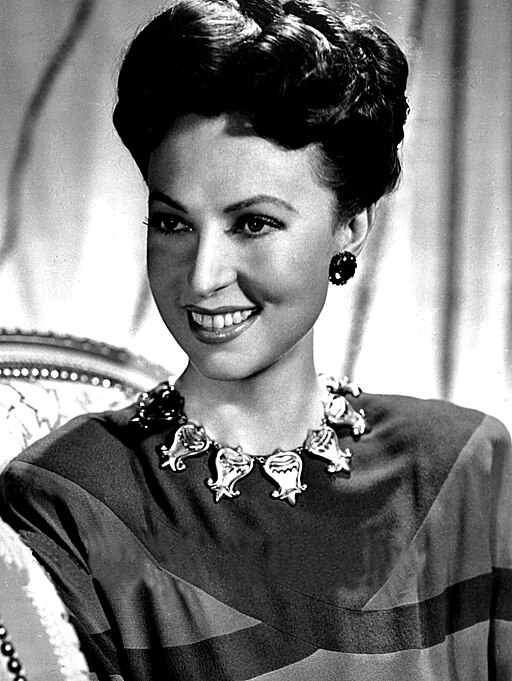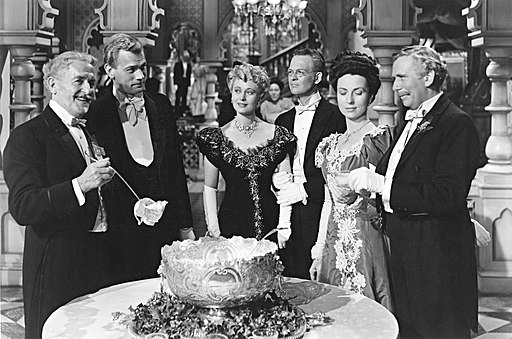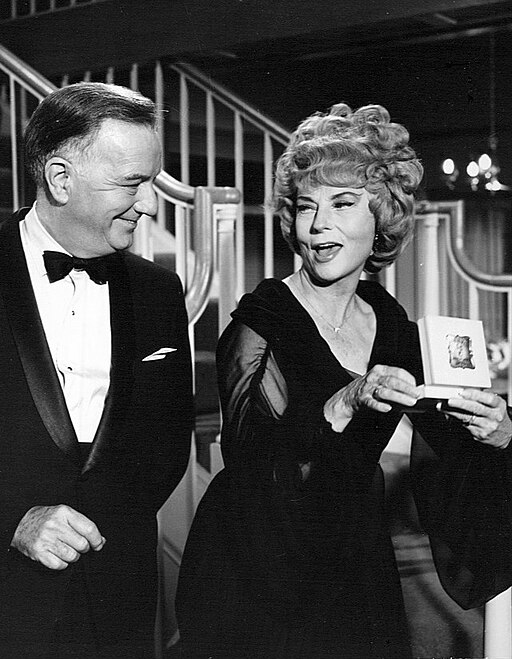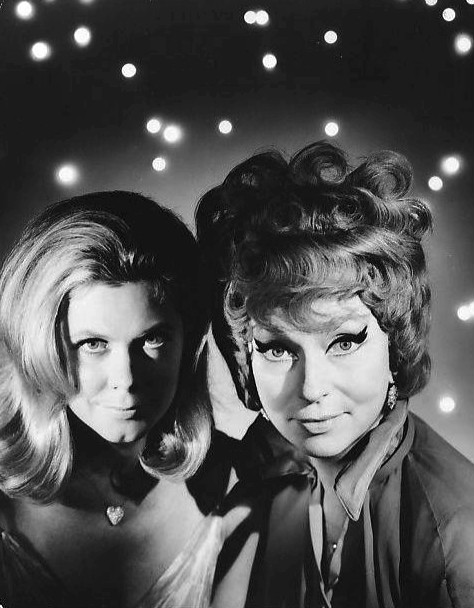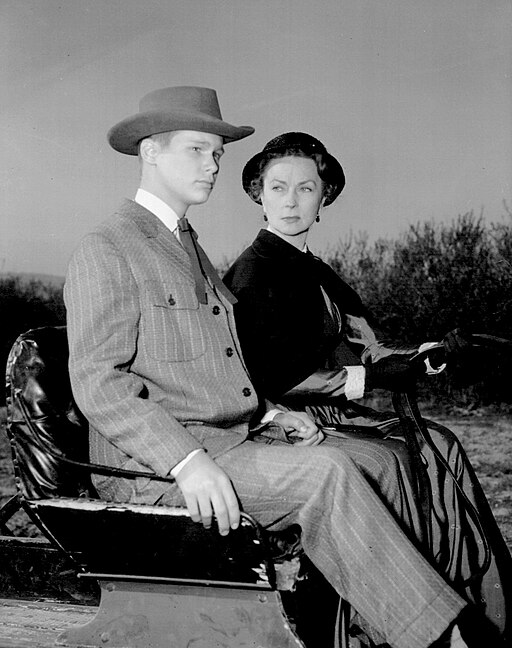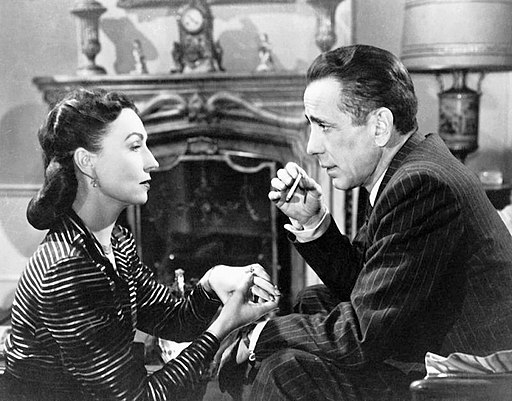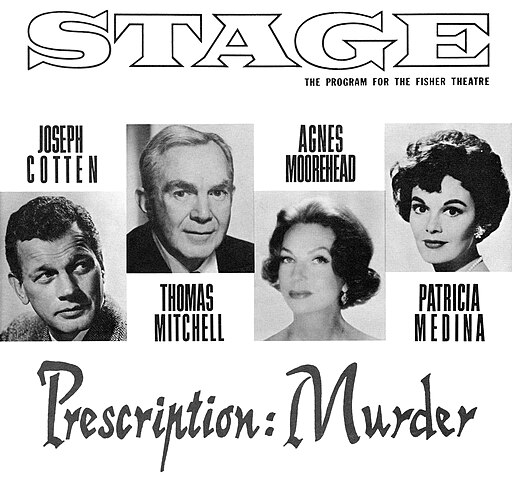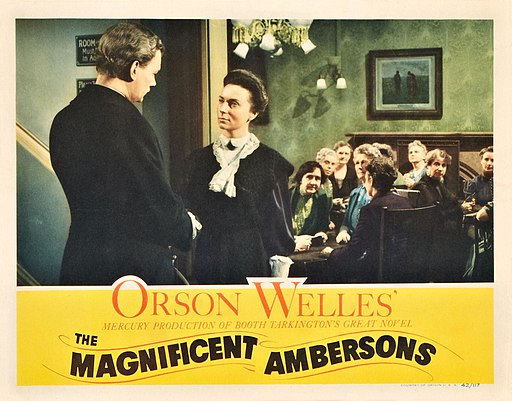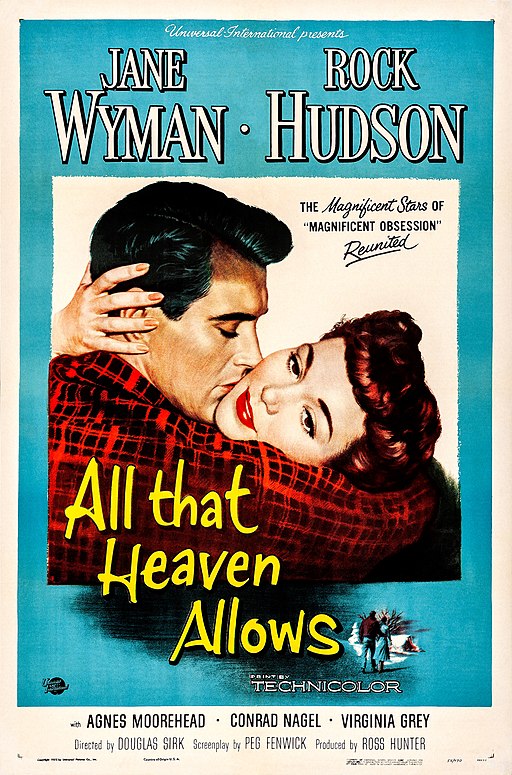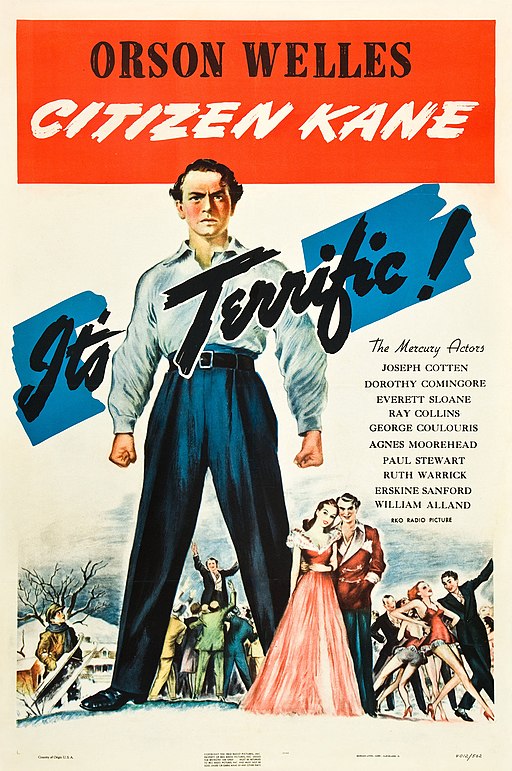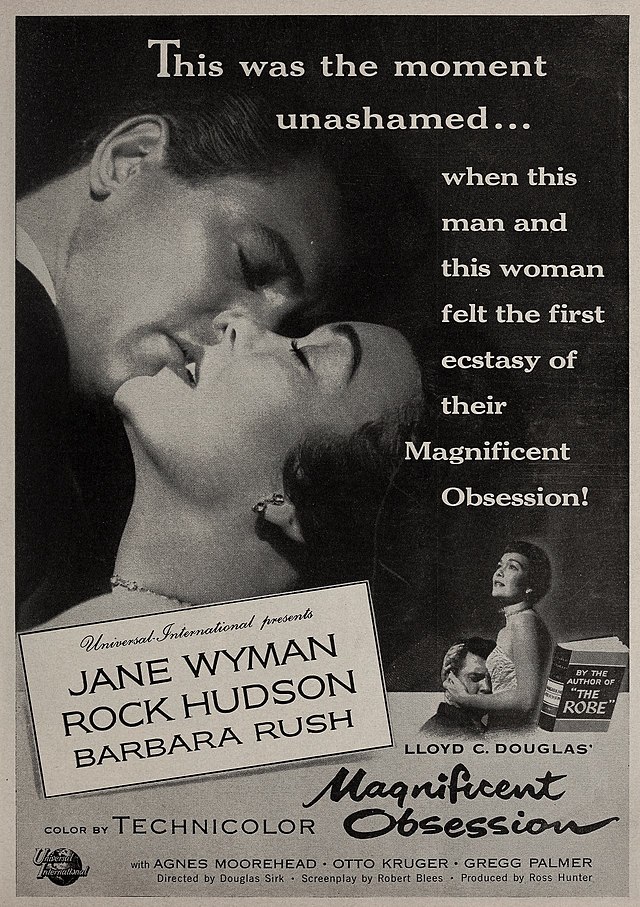Agnes Moorehead
back| Full Name | Agnes Robertson Moorehead |
| Stage Name | Agnes Moorehead |
| Born | December 6, 1900 |
| Birthplace | Clinton, Massachusetts, USA |
| Died | April 30, 1974 |
| Buried | Dayton Memorial Park Cemetery, Dayton, Ohio, USA |
| Married to | John Griffith Lee (1930–1952) - Robert Gist (1954–1958) |
| Children | Moorehead and her first husband, John Griffith Lee, adopted a son, Sean |
| Notable films | Citizen Kane (1941) - The Magnificent Ambersons (1942) - Mrs. Parkington (1944) - Johnny Belinda (1948) - All That Heaven Allows (1955) - Hush... Hush, Sweet Charlotte (1964) |
Agnes Moorehead
The Lavender Lady
Agnes Moorehead was an iconic American actress renowned for her versatility and distinctive voice. Graduating from the University of Wisconsin and the American Academy of Dramatic Arts, she first garnered attention in radio, most notably with Orson Welles's Mercury Theatre.
Moorehead's film debut in "Citizen Kane" (1941) launched a remarkable career, showcasing her talents in classics like "The Magnificent Ambersons" and "Hush… Hush, Sweet Charlotte." Her role as Endora in the TV series "Bewitched" further cemented her status as a beloved character actress.
Agnes Moorehead, often affectionately referred to as "The Lavender Lady," was known for her fondness for the color lavender.
Related
Agnes Moorehead (1900 – 1974)
Biography and Career Overview
Agnes Robertson Moorehead was born on December 6, 1900, in Clinton, Massachusetts. Her father was a Presbyterian minister, and her mother was a former singer. This mix of religious rigor and artistic sensibility profoundly influenced her upbringing. She grew up moving frequently due to her father's ministry assignments.
Moorehead showed an early interest in performing. She attended Muskingum College in New Concord, Ohio, where she began acting in school plays. After her graduation, she taught public school for a short time but her passion for acting led her to further her studies. She earned a master's degree in English from the University of Wisconsin and later studied at the American Academy of Dramatic Arts in New York.
Path to Success
Moorehead's career in acting began on the stage and in radio. She was particularly effective in radio, where her distinctive voice made her a sought-after performer. Her big break came when she joined Orson Welles's Mercury Theatre, where she became part of the ensemble that performed the infamous "War of the Worlds" radio broadcast in 1938.
Her film debut was in Welles's "Citizen Kane" (1941), where she played the mother of Charles Foster Kane. This role marked the beginning of a successful film career that spanned over three decades.
Marriages and Personal Life
Moorehead married twice. Her first marriage was to John Griffith Lee in 1930. They adopted a son, Sean, but the marriage ended in divorce in 1952. Her second marriage was to actor Robert Gist in 1954, which also ended in divorce in 1958. Moorehead's marriages were reportedly troubled, and her career often took precedence in her life.
Professional Achievements and Passions
Throughout her career, Moorehead was known for her versatility and range. She earned four Academy Award nominations and won a Golden Globe. Her performances in "The Magnificent Ambersons" and "Hush… Hush, Sweet Charlotte" are particularly celebrated.
Moorehead's passion extended beyond acting. She was a devout Christian and often spoke about her faith. Additionally, she was known for her love of literature and was an accomplished pianist.
Death and Legacy
Agnes Moorehead passed away on April 30, 1974, from uterine cancer, a diagnosis she received in 1972. She had been a smoker for many years, which was speculated to be a contributing factor to her illness. She was buried in Dayton, Ohio.
Moorehead's legacy in the entertainment industry is significant. She is remembered not only for her iconic film roles but also for her work in radio and television, especially her role as Endora in the TV series "Bewitched." Her career path, marked by both successes and challenges, showcases her as a trailblazer for women in the arts.
Interview with Agnes Moorehead:
The Unique Acting Style of Agnes Moorehead:
Agnes Moorehead's acting style was marked by a unique blend of theatricality, emotional depth, and versatility, making her one of the most distinctive and respected character actresses of her time.
Theatrical Training and Influence
- Classically Trained: Moorehead's background in classical theater and radio drama greatly influenced her acting style. She was known for her precise diction, clear enunciation, and the ability to convey complex emotions through her voice alone, a skill honed during her years in radio.
- Stage Presence: Her stage experience translated into a strong screen presence. She often brought a sense of grandeur and theatricality to her film roles, which helped her stand out even in smaller parts.
Emotional Depth and Range
- Versatility: Moorehead's range as an actress was one of her most notable attributes. She effortlessly moved between different genres, from drama and film noir to comedy and horror.
- Complex Characters: She had a knack for playing multifaceted characters. Moorehead often portrayed women of strong will, intelligence, and complexity, bringing depth to roles that could have otherwise been one-dimensional.
Physicality and Expressiveness
- Expressive Features: Moorehead used her expressive facial features to great effect. Her ability to convey a range of emotions, from stern severity to tender concern, often with just a look, was a hallmark of her performances.
- Body Language: She was adept at using her body language to add layers to her characters. Whether portraying the haughty aristocracy or a humble mother, her posture, gestures, and movements were always in sync with the character she was playing.
Voice and Articulation
- Distinctive Voice: Moorehead's voice was one of her most powerful tools. It was distinctive, with a slightly husky quality, which she could modulate to suit various roles.
- Radio Drama Influence: Her experience in radio dramas contributed to her exceptional vocal control. She was able to convey a wide range of emotions and subtleties through her voice alone, a skill that enhanced her film and television performances.
Emotional Intensity
- Intensity and Authenticity: Moorehead brought an intensity to her roles that felt both authentic and deeply engaging. Her performances were often layered, revealing the inner turmoil or strength of her characters.
- Memorable Performances: In roles such as Fanny Minafer in "The Magnificent Ambersons" or Velma Cruther in "Hush… Hush, Sweet Charlotte", she displayed a remarkable ability to capture the emotional essence of her characters, making her performances memorable and often stealing scenes.
Legacy
- Influential Style: Moorehead's style influenced the approach of character actors in film and television. She demonstrated that supporting roles could be just as impactful as leading ones.
- A Trailblazer: As a woman in an era dominated by male actors, Moorehead's ability to carve out a successful career in diverse roles set a precedent for future generations of actresses.
Film Quotes from Agnes Moorehead:
From "Citizen Kane" (1941)
- As Mary Kane, she poignantly says to a young Charles Foster Kane, "Charles, you mustn't be too hard on yourself. We all make mistakes." This line reflects the complexity and emotional depth she brought to her character.
From "The Magnificent Ambersons" (1942)
- In her role as Fanny Minafer, Moorehead delivers a line filled with despair: "The only thing that lasts is character." This quote captures the essence of her character's struggles and the film's themes of change and loss.
From "Hush… Hush, Sweet Charlotte" (1964)
- Playing Velma Cruther, Moorehead had several memorable lines, including: "You're a vile, sorry little bitch!" This line showcases her ability to portray intense emotions.
From "Bewitched" (TV Series)
- As Endora, Moorehead had a wealth of witty and biting remarks. One notable quote is: "Darling, I'm a witch. It's what I do. When things bother me, I turn them into toads." This line epitomizes her character's sharp tongue and magical prowess.
From "Johnny Belinda" (1948)
- As Aggie McDonald, Moorehead delivers a compassionate line: "We've all got to have patience, even with the Lord." This quote reflects the depth and empathy of her character.
Awards and Recognition:
Academy Awards (Oscars)
- Nominated: Best Actress in a Supporting Role for "The Magnificent Ambersons" (1942)
- Nominated: Best Actress in a Supporting Role for "Mrs. Parkington" (1944)
- Nominated: Best Actress in a Supporting Role for "Johnny Belinda" (1948)
- Nominated: Best Actress in a Supporting Role for "Hush… Hush, Sweet Charlotte" (1964)
Emmy Awards
- Nominated: Outstanding Single Performance by an Actress in a Leading Role for "The Wild Jacks" on "Studio One" (1957)
- Nominated: Outstanding Performance in a Supporting Role by an Actress for "Bewitched" (1967)
- Nominated: Outstanding Continued Performance by an Actress in a Supporting Role in a Comedy Series for "Bewitched" (1968)
Golden Globe Awards
- Won: Best Supporting Actress for "Hush… Hush, Sweet Charlotte" (1965)
Other Awards and Honors
- Won: New York Film Critics Circle Award for Best Actress for "The Magnificent Ambersons" (1942)
- Received: A star on the Hollywood Walk of Fame for her contributions to the motion picture industry, located at 1719 Vine Street.
- Honored: Posthumously inducted into the Radio Hall of Fame (2012).
Movies featuring Agnes Moorehead:
1940s
- "Citizen Kane" (1941) - A groundbreaking film by Orson Welles, where Moorehead plays Charles Foster Kane's mother, showcasing the rise and fall of a newspaper tycoon.
- "The Magnificent Ambersons" (1942) - In this Orson Welles classic, Moorehead portrays Fanny Minafer in a story about the declining fortunes of a proud Midwestern family.
- "Journey Into Fear" (1943) - A film noir spy thriller, featuring Moorehead in a supporting role in a story about an American ballistics expert in Turkey entangled in espionage intrigue.
- "Government Girl" (1943) - A romantic comedy set in wartime Washington, D.C., with Moorehead in a supporting role.
- "Jane Eyre" (1944) - An adaptation of Charlotte Brontë's novel, where Moorehead plays Mrs. Reed, Jane's harsh aunt.
- "Since You Went Away" (1944) - A drama about the American home front during WWII, featuring Moorehead in a supporting role.
- "Dragon Seed" (1944) - A war drama set in China during the Japanese invasion, with Moorehead playing a supporting role.
- "Mrs. Parkington" (1944) - Moorehead stars as the Baroness Aspasia Conti in this story about a woman's life from a hotel maid to a society matron.
- "Tomorrow, the World!" (1944) - A film about a young German boy, a former Hitler Youth, sent to live with his uncle in America, featuring Moorehead in a supporting role.
- "Our Vines Have Tender Grapes" (1945) - A heartwarming tale of rural American life, with Moorehead playing Bruna Jacobson.
- "Keep Your Powder Dry" (1945) - A drama about three WAC recruits, featuring Moorehead in a supporting role.
- "Her Highness and the Bellboy" (1945) - A romantic comedy where Moorehead plays Countess Zoe.
- "Dark Passage" (1947) - A film noir featuring Humphrey Bogart, with Moorehead playing the scheming Madge Rapf.
- "The Lost Moment" (1947) - A literary drama where Moorehead plays Juliana Borderau, in a story about a lost love letter by a famous poet.
- "Johnny Belinda" (1948) - Moorehead earned an Academy Award nomination for her role as Aggie McDonald in this drama about a deaf-mute woman.
- "Station West" (1948) - A western film noir, featuring Moorehead in a key role.
- "The Woman in White" (1948) - A mystery film where Moorehead plays Countess Fosco, based on Wilkie Collins's novel.
1950s
- "Caged" (1950) - A prison film where Moorehead plays Ruth Benton, a sympathetic warden.
- "Fourteen Hours" (1951) - A film noir about a young man on the ledge of a New York hotel, with Moorehead in a supporting role.
- "Show Boat" (1951) - A musical in which Moorehead plays Parthy, set aboard a Mississippi River showboat.
- "Adventures of Captain Fabian" (1951) - A swashbuckling adventure set in New Orleans, featuring Moorehead.
- "The Blue Veil" (1951) - A drama where Moorehead plays Mrs. Palfrey, in a story about a woman who becomes a nurse to other people's children.
- "The Blazing Forest" (1952) - A drama set in the world of logging camps, featuring Moorehead in a key role.
- "Scandal at Scourie" (1953) - A drama about a Catholic orphan girl adopted by a Protestant couple, with Moorehead in a supporting role.
- "Main Street to Broadway" (1953) - A film celebrating American theater, with Moorehead appearing as herself.
- "The Revlon Mirror Theater" (1953) (TV Movie) - A television drama featuring Moorehead.
- "Those Redheads from Seattle" (1953) - A musical adventure set during the Klondike gold rush, featuring Moorehead in a supporting role.
- "Magnificent Obsession" (1954) - A romantic drama where Moorehead plays Nancy Ashford, about a reckless playboy who reforms after causing a tragedy.
- "Untamed" (1955) - A historical drama set in South Africa, with Moorehead playing Aggie.
- "All That Heaven Allows" (1955) - A Douglas Sirk film about a romance between a wealthy widow and a younger man, featuring Moorehead as Sara Warren.
- "The Left Hand of God" (1955) - A drama set in a Chinese mission, with Moorehead playing Beryl Sigman.
- "Meet Me in Las Vegas" (1956) - A musical romance, featuring Moorehead in a supporting role.
- "Pardners" (1956) - A comedy Western where Moorehead plays Matilda Kingsley.
- "The Swan" (1956) - A romantic comedy set in a European kingdom, with Moorehead playing Queen Maria Dominika.
- "The True Story of Jesse James" (1957) - A western where Moorehead plays Mrs. Samuel, depicting the life of the infamous outlaw.
- "Jeanne Eagels" (1957) - A biographical drama about the famous actress, with Moorehead in a key role.
- "The Story of Mankind" (1957) - A fantasy film where Moorehead plays the Queen of Sheba.
- "Night of the Quarter Moon" (1959) - A drama about an interracial marriage, featuring Moorehead as Cornelia Nelson.
1960s and 1970s
- "Pollyanna" (1960) - A Disney film where Moorehead plays Mrs. Snow, in a story about an optimistic orphan.
- "Twenty Plus Two" (1961) - A mystery film, featuring Moorehead in a supporting role.
- "Bachelor in Paradise" (1961) - A romantic comedy where Moorehead plays Mrs. Delavane.
- "Jessica" (1962) - A drama set in Sicily, with Moorehead playing Maria Lombardo.
- "How the West Was Won" (1962) - An epic Western film, featuring Moorehead in a small but memorable role.
- "Hush… Hush, Sweet Charlotte" (1964) - A psychological thriller, where Moorehead plays Velma Cruther, earning her critical acclaim.
- "The Singing Nun" (1966) - A musical biopic about Sister Smile, featuring Moorehead as Sister Cluny.
- "What's the Matter with Helen?" (1971) - A horror thriller, with Moorehead in her final film role.
TV Shows with Agnes Moorehead:
- "Bewitched" (1964-1972): Moorehead is most famous on television for her role as Endora, the mother of Elizabeth Montgomery's character, Samantha.
- "The Twilight Zone" (1959, 1961): She appeared in episodes titled "The Invaders" and "Jess-Belle."
- "Wagon Train" (1958-1964): Moorehead appeared in several episodes of this Western-themed show.
- "Rawhide" (1959-1965): She guest-starred in an episode of this Western series.
- "Burke's Law" (1963-1966): Appeared in various episodes.
- "The Wild Wild West" (1965-1969): Featured in the episode "The Night of the Vicious Valentine."
- "The Rebel" (1959-1961): Moorehead appeared in an episode of this Western series.
- "Suspense" (1949-1954): She starred in several episodes of this early TV anthology series.
- "Studio One" (1948-1958): Moorehead appeared in various episodes of this dramatic anthology series.
- "The Red Skelton Show" (1951-1971): Featured in an episode of this comedy variety show.
- "Playhouse 90" (1956-1960): Appeared in episodes of this anthology drama series.
- "Climax!" (1954-1958): Moorehead appeared in this anthology series.
- "The Alfred Hitchcock Hour" (1962-1965): She appeared in the episode "The Jar."
- "Ford Theatre" (1948-1957): Featured in episodes of this anthology series.
- "The United States Steel Hour" (1953-1963): Appeared in various episodes.
- "Adventures in Paradise" (1959-1962): Featured in the show.
- "The Dick Powell Theatre" (1961-1963): Appeared in this anthology series.
- "The Chevy Mystery Show" (1960): Featured in the episode "The Last Room."

